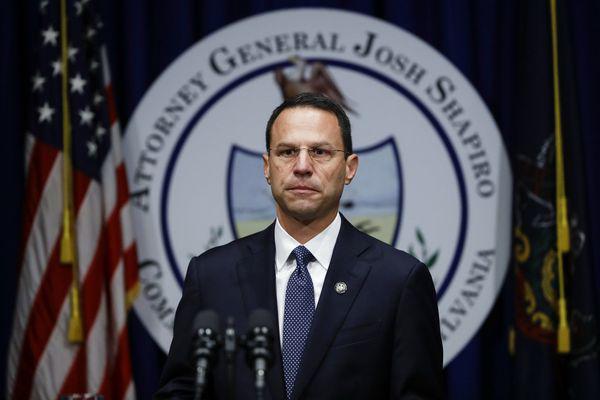|
Pa. Senate must answer to victims of child sexual abuse
Express-Times
Last year Pennsylvania took a courageous step toward justice for thousands of victims of child sexual abuse. A grand jury investigation uncovered the crimes of more than 300 priests in the Catholic Church and a hierarchy that gave them cover. The grand jury, led by Attorney General Josh Shapiro, didn’t simply pry open the past. It looked to the future, recommending laws that would help people get long-sought relief from the courts, tighten reporting standards for suspected abuse, and create a society in which children would be better protected, if not totally shielded, from predators. Well, the future is now. The Pennsylvania Legislature tried last year to assemble a package of reforms recommended by the grand jury, but failed when the House and Senate couldn’t agree. Some lawmakers thought the Catholic Church’s program to settle with victims out of court should be allowed to play out, in lieu of changing the statute of limitations to give long-ago victims a limited “window” to sue. Liberalizing the statute of limitations is still a major sticking point — a shameful one — but at least the House of Representatives has taken the initiative to address other changes. In bills approved last month and sent to the Senate, the lower house clarified that nondisclosure agreements with child sex abuse victims do not prevent them from speaking with with police about suspected criminal activities. The grand jury reported that church officials often employed such agreements to try to keep victims quiet. Another House bill would increase the penalties for mandated reporters who fail to contact law enforcement about suspected abuse. Also, the House overwhelmingly agreed to enumerate the rights of crime victims in the state constitution, and to revoke the pension benefits of public officials and workers convicted of sexual offenses. It shouldn’t take much arm-twisting to see these reforms are needed to protect vulnerable children and teens against sexual abuse, and not just from religious organizations. The Senate now has a framework with which to get these bills to Gov. Wolf’s desk. The biggest hurdle is still the statute of limitations — specifically, whether a two-year window of court access should be opened for victims who missed their deadlines years ago. The House version would eliminate the criminal statute of limitations for child sex crimes altogether; future abuse victims would be allowed to file civil lawsuits until they are 55. The law now requires a victim to seek criminal charges by age 50 and file civil suits by age 30. Yet the remedy for older adult victims would be a constitutional amendment creating a two-year window for litigation — a cumbersome process that could take years. We agree with Shapiro that this could be done through the law-making process, without having to tell victims who missed their shot at justice that they’ll have to keep waiting. The state Senate holds the key to dismantle decades of injustice. It’s time to act.
|
.
Any original material on these pages is copyright © BishopAccountability.org 2004. Reproduce freely with attribution.
